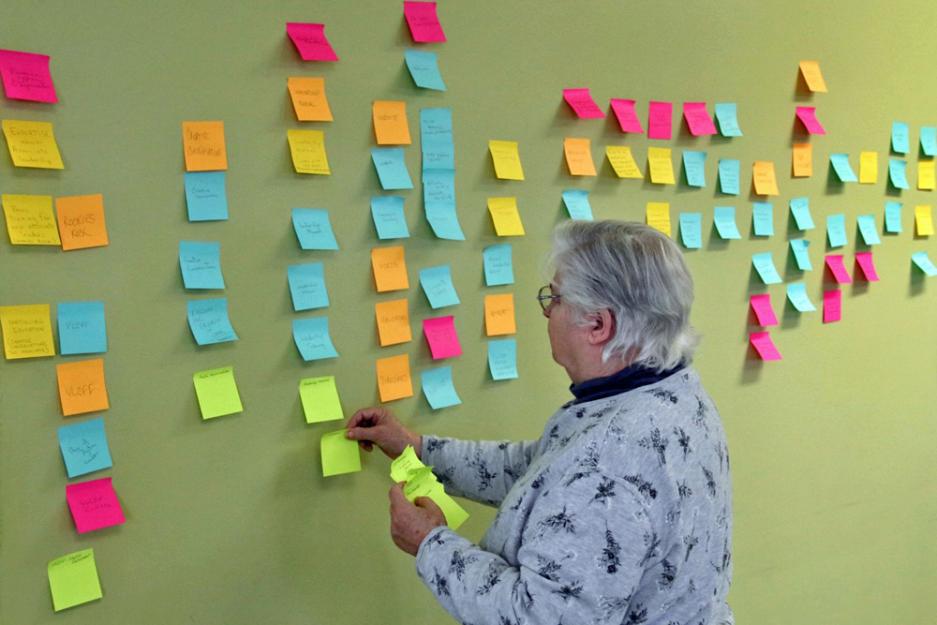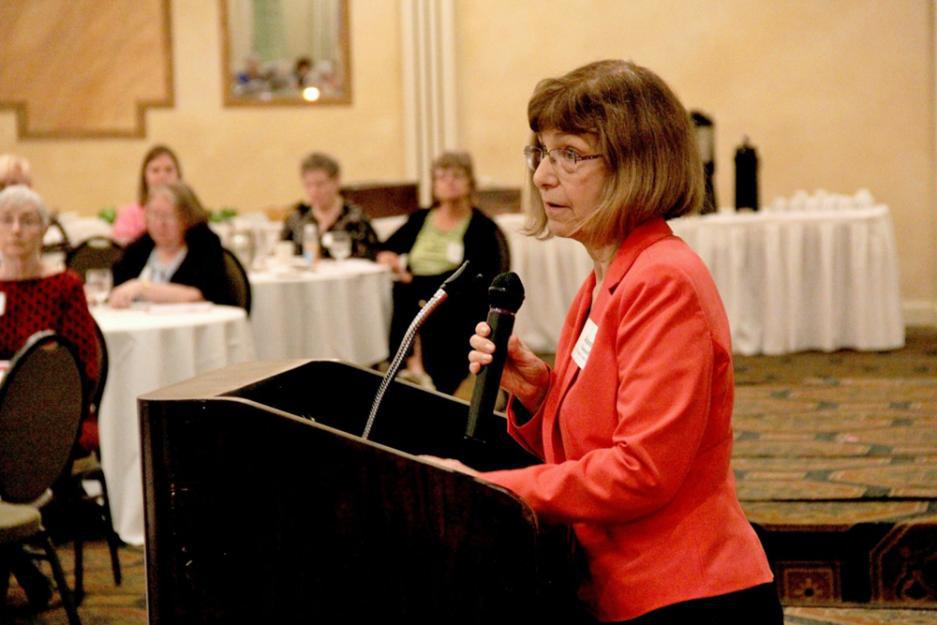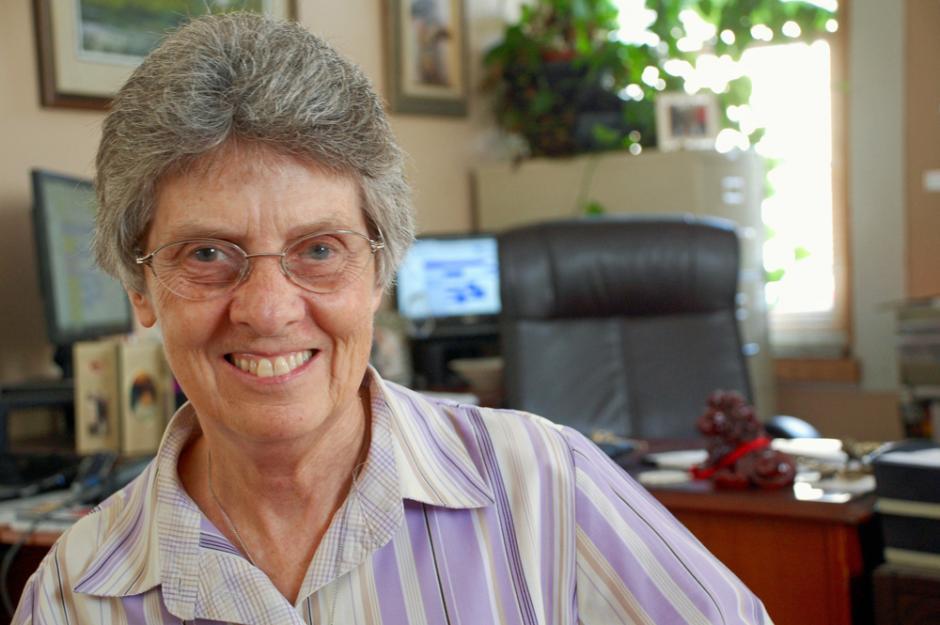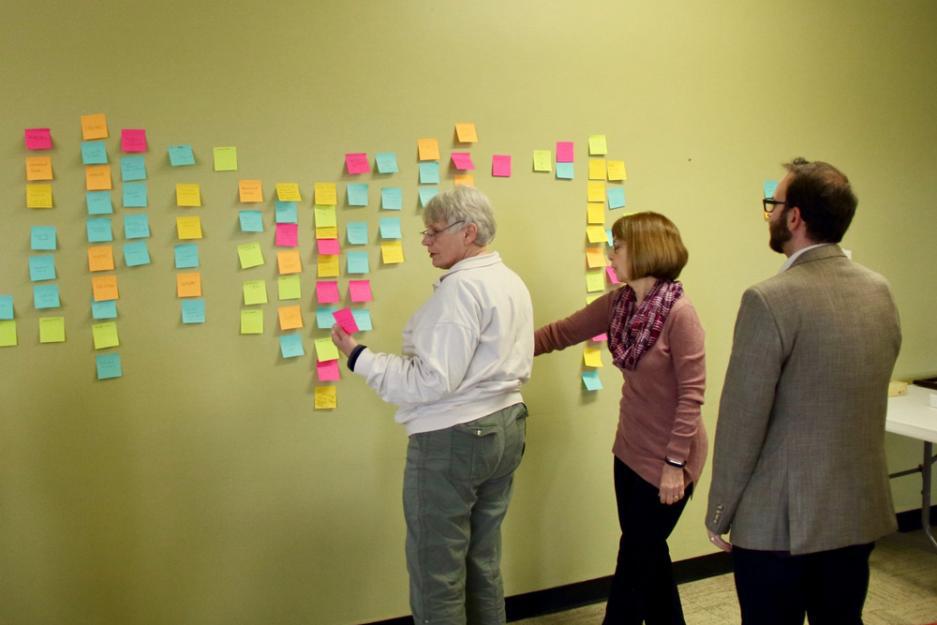|
As US associates track to surpass women religious, both face 'turning point'
By Dan Stockman
If current trends continue, within five years, the number of associates in the United States will be greater than the number of vowed women religious. A 2016 study found more than 35,000 associates in the United States, a number Jeanne Connolly, board president of the North American Conference of Associates and Religious, or NACAR, said has likely grown since then. While NACAR doesn't track numbers, Connolly said communities continue to add associate programs. At the very least, she said, the number has held steady. The number of sisters, meanwhile, continues to fall. The Center for Applied Research in the Apostolate, or CARA, reported 44,117 sisters in 2018, down from 57,544 in 2010. A 2016 actuarial study done for the National Religious Retirement Office projects there will be fewer than 30,000 sisters in 2024. Connolly, a covenant companion of the Wheaton Franciscans in Wheaton, Illinois, called the numbers bittersweet. She said while she mourns the dwindling number of sisters, she is grateful for a way of life for those who yearn for a deeper spiritual commitment but are unable or unwilling to take perpetual vows. "As Christians, we've all been called to find this deeper way of sharing what God has given us," Connolly said. "But it breaks my heart when I sit in the chapel and there's fewer and fewer faces." Associates are laypeople who have made a public commitment to a religious institute. The requirements and names vary by community: Some allow almost anyone who commits to their charism to join while others have age, gender or denominational requirements. But while the number of associates is steady or growing, there are worries about their demographics, too: The NACAR study found that 71 percent of associates are between ages 60 and 79, and the percentage of associates in their 30s and 40s dropped from 21 percent in 2000 to 5 percent in 2015. Nearly 80 percent of sisters in the United States are age 70 or older. The aging of and declining numbers of sisters has changed the focus of many associate programs dramatically, Connolly said: Associates are now looked at as a way to carry on the congregation's charism, even if the vowed sisters are gone. Kathleen Sprows Cummings, a history professor at the University of Notre Dame who has written extensively about the Catholic Church and women religious in particular, said the moment is historic. "These trends show how important it is for sisters to communicate their histories and charisms to those who don't take those same vows," Cummings said. "This is really a crucial moment. ... It seems to be a turning point." Amityville Dominican Sr. Mary Hughes, director of transitional services at the Leadership Conference of Women Religious, where she helps communities preparing for completion, said more and more of the communities she works with are dealing with the issue of how to keep the charism alive. "Some have more associates than they have vowed members," Hughes said. Hughes said she works with congregations and their associates to decide what will happen in the future. For those associates who want to continue even if there are no vowed sisters, the associate program needs to develop leadership and do strategic planning for things such as how to attract new associates. "It's not about what happens 10 years after completion. It's about being embedded in the community where they're at," Hughes said. "Many associates work in parishes; they see they have natural venues to knit their charism into this larger community." That idea of planting the charism within the greater community led the Sisters of Charity of Our Lady of Mercy in Charleston, South Carolina, to develop their associate program three or four years ago. The congregation now has 13 members and 30 associates. Growing the program wasn't about keeping the congregation alive, said Sr. Mary Joseph Ritter, general superior. It was about keeping the mission and the spiritual calling alive in the Charleston area. "We look upon our associates as people who will be bearers of our charism," Ritter said. "We call them our 'partners in charity.' " The Sisters of Charity of Our Lady of Mercy associates have a steering committee that acts as the leadership team, and a sister is a liaison to the group. "They really are a blessing to us, and they participate in everything they can," Ritter said. Connolly said some congregations are working so hard to deal with the logistics of falling numbers, such as selling convents, spinning off sponsored ministries and funding health care, it can be easy to forget the spiritual side, which is where the associates come in. And for those called to be associates, the responsibility of carrying on the charism is also a blessing. "A lot depends on how the associates have been formed and empowered," she said. "If when you came to us, you already had that spark in your heart, then it's just a matter of allowing that spark to grow, and then it ceases to be a burden." The issue of carrying on the charism looms so large, it is discussed at almost every NACAR board meeting, Connolly said. In addition to the spiritual side, associates may have to think of the concrete, as well: Without sisters, will there be buildings? Funding? Does there need to be either of those? And how do you ensure the associates don't go astray when there are no sisters to guide them? "That's the struggle right now," Connolly said. "I really don't know anyone that has that piece figured out." She said some have considered forming nonprofits, and others have considered forming a public juridic person, or PJP, which is an organization officially recognized by the church. "What I ask is, is this something where there's enough people that believe this is a calling and want it to continue?" Connolly said. "Because if you start with a passion for it, well, that's how the founders started. They didn't have financing or structures. They didn't start out with anything but a passion and a few, sometimes very few, people willing to help them." Hughes said following the Holy Spirit is much more important than deciding whether to form a nonprofit or a public juridic person. "If it is of God, it will continue and it will grow," Hughes said. "You've given birth to something beyond yourselves that will be carried forward into the future, and that gives sisters a great deal of hope." She said since the Second Vatican Council encouraged the formation of the laity, the rise of associate and similar programs is transforming the church itself. Associates "are not there to be baby nuns or to tag along with us," Hughes said. "They're there to strengthen a spirituality that's already in them and to learn how to bring it forward." Connolly said both sisters and associates need to remember what charism — defined as a divinely conferred gift or power — means in practice. "In my early years, I felt the charism belonged to the sisters, when really the charism is the Holy Spirit," she said. "We don't know where the Holy Spirit is taking the associate movement. We don't know what's going to happen, and that part is scary. But all of this is part of God's plan." Contact: dstockman@ncronline.org
|
.
Any original material on these pages is copyright © BishopAccountability.org 2004. Reproduce freely with attribution.



